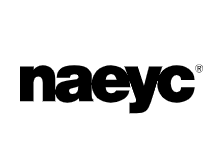Ethics and Professionalism F19
As you explored the Kentucky Standards of Training for Early Childhood Professionals, perhaps you began to reflect on your own personal values. As you begin to think about your values and ethics, take some time to review the DEC’s and NAEYC’s ethic statements below.

Title
The Code of Ethics of the Division for Early Childhood (DEC) of the Council for Exceptional Children

We define code of ethics as developing a sense of moral values as it relates to conducting training sessions and conforming to the right principles of conduct.
How does a code of ethics become part of the fabric of our early childhood profession in training, education, and practice? How do our beliefs and behaviors factor into how we train others? If we are not careful we could have discrepancies between stated beliefs and our actual behaviors. So let’s take a closer look at professional ethics and ourselves.
We understand the expectations of the standards. We have also reviewed two professional organizations’ views on ethics and professionalism. As professionals we bring a very personal base of values and principles of conduct with us as we train. Following is a list of some ethical behaviors trainers should demonstrate and practice;
- Respect critical role of early care and education learners in the lives of young children
- Honor confidentiality
- Maintain positive and productive relationships with training colleagues
- Keep welfare of children as the deciding factor in making training decisions
- Maintain training required levels of participation
- Expect and model respect of learners for communities in which they work
- Encourage ongoing professional development
- Strive to make others aware of the importance of the early years
- Strive to make others aware of the importance of high quality programs and well trained staff
- Give credit where credit is due
- Follow the Kentucky Standards of Training for Early Childhood Professionals
- Respect and follow copyright laws in training
- Provide a full 60 minutes of training per early care and education clock hour issued
Part of following the Kentucky Standards of Training for Early Childhood Professionals, is to provide participants with content that is current, relevant, and accurate. Research is an important ingredient in the development of the content of any training topic you provide. The trainer has a responsibility to know and be able to appropriately include and discuss current research and topic at hand.
Empirical Evidence
Scientifically-based research, avoids personal bias and fads, resolves competing approaches.
Professional Wisdom
Judgement that individuals acquire through experience, operates when research is incomplete, and adapts to circumstances.
Evidence-based training is the integration of Empirical Evidence and Professional Wisdom. Effective training is evidence-based. Evidence-based training utilizes both established research and emerging/promising practice. Established research has significant, proven evidence of success and empirical data that supports positive outcomes.
Building evidence-based practice in your training may mean that…
• Research justifies what we’re teaching.
• Research helps us improve something that we’re already doing.
• Research suggests a solution to a problem we have.
• Research uncovers an interesting or intriguing practice.
• Research may lead to changes.
Ethically we need to make sure that what we are providing is a true training session. When an informational session is offered, such as Introduction to Kentucky’s Resources, the purpose is to disseminate information only. Its purpose is not to produce a change in behavior. Those informational sessions are not classified as training in the context that we are defining in FET.
A good question to ask ourselves is, do our personal values conform to the professional code of conduct?
According to Michael Davis, ethics has at least three meanings.
1. A synonym for common morality.
2. The name of a field of philosophy.
3. Name for some morally permissible standard guiding members of a group.
A professional standard is morally binding because it constitutes a practice from which each participant benefits if others do their share. As Davis explains, a professional’s code is a standard that is expected to be followed by everyone in the same profession. A practice that each person voluntarily enters by, claiming membership in the profession, and having that membership acknowledged by other members.
Resources
EBP Workshop Guide – http://www.ncsall.net/fileadmin/resources/teach/EBP_wkshp_guide.pdf
